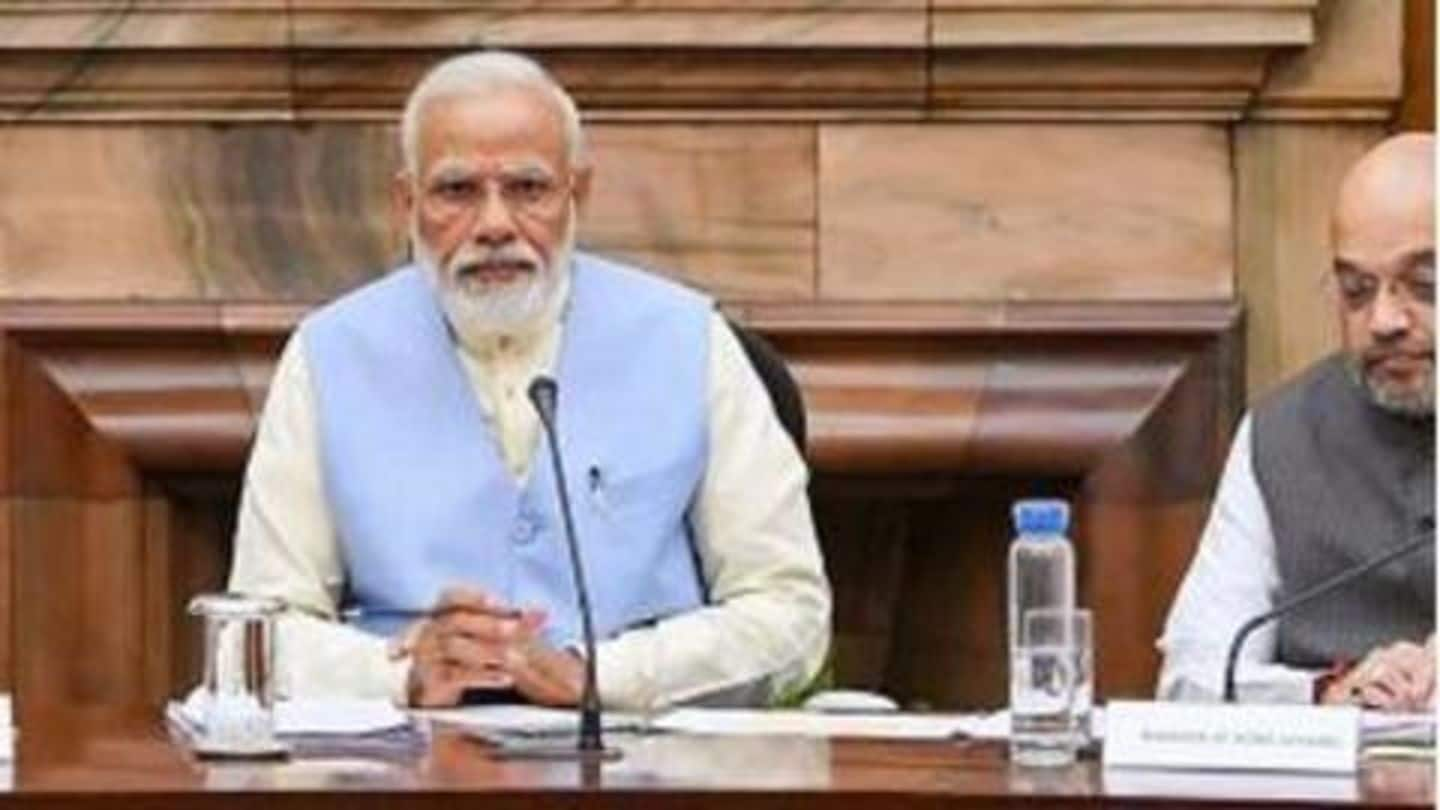
Cabinet gives ex-post facto nod to domicile law in J&K
What's the story
The Union Cabinet on Wednesday gave its ex-post facto approval to the Jammu and Kashmir (Adaptation of State Laws) Second Order, 2020.
The order notably reserves all government jobs in the union territory for domiciles.
The development comes two days after the J&K administration laid out the rules for issuance of domicile certificates, inviting criticism.
Here are more details.
Quote
Here's an official statement from the central government
An official statement said, "The Union Cabinet, chaired by Prime Minister Narendra Modi, has given its ex post facto approval for the Jammu & Kashmir (Adaptation of State Laws) Second Order, 2020 issued under section 96 of Jammu & Kashmir Reorganisation Act, 2019."
Statement
'Modifies applicability of domicile conditions to all levels of jobs'
Further, the statement said that the order modified the applicability of domicile conditions to all levels of jobs in the UT under Jammu & Kashmir Civil Services (Decentralisation and Recruitment) Act (Act No. XVI of 2010).
The statement added, "This Order would apply the specified domicile criterion for employment to all posts in the Union Territory of Jammu & Kashmir."
Context
Centre issued domicile order in April
On March 31, the Centre had notified the Jammu & Kashmir (Adaptation of State Laws) Order, 2020, allowing Indians across the country to apply for local government jobs in the UT on certain conditions.
The government faced backlash from locals and political leaders in J&K, and on April 3, it issued the Second Order offering protection to domiciles for government jobs.
Information
Who is a domicile?
Under the April 3 order, a domicile is someone "who has resided for a period of fifteen years in the UT of J&K or has studied for a period of seven years and appeared in class 10th/12th examination in an educational institution located in J&K."
Recent developments
Earlier on Monday, J&K administration notified domicile rules
On Monday, the UT administration notified the Jammu and Kashmir Grant of Domicile Certificate (Procedure) Rules 2020 for the issuance of domicile certificates.
People belonging to West Pakistan, Valmikis, women marrying outside communities, non-registered Kashmiri migrants, and displaced persons were made eligible for domicile certificates.
Any delay in issuing the certificate beyond the stipulated seven-day period would attract a fine of Rs. 50,000.
Criticism
Grossly inappropriate and unethical: National Conference party
On Tuesday, the National Conference party criticized the domicile order and the rules for the issuance of certificates. It said the timing and procedure of the order was grossly "inappropriate and unethical."
It also argued that the domicile order and rules have been issued under the Jammu and Kashmir Reorganization Act 2019 which has been challenged in the Supreme Court.
Quote
'Government under obligation to desist from exercising powers under Act'
The party said, "When the constitutional validity of the Act is under consideration of the Court, the government was under an obligation to desist from exercising powers under the very Act including the power to promulgate Domicile law and Rules in question."
Protest
J&K National Panthers Party burns central government's effigy
On Wednesday, the Jammu and Kashmir National Panthers Party (JKNPP) burned an effigy of the BJP-ruled central government in Jammu.
JKNPP Chairperson Harsh Dev Singh said the law would allow migrant workers—who have been residing in J&K for many years—attain domicile status, making them eligible to apply for government jobs thereby "depriving the local youth of even the negligible job avenues in J&K."